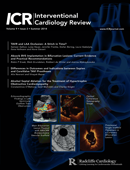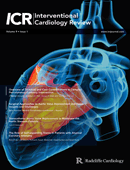ESC Congress 2014 in Barcelona Spain

“ESC Congress 2014 in Barcelona Spain promises to be bigger, better and more interactive than ever before,” says Professor Keith Fox, Chair of the Congress Programme Committee. The European Society of Cardiology hosts the world’s largest and most influential cardiovascular event every year in August. Record numbers of hot line sessions and abstracts were submitted this year and the congress is on track to host the largest number of delegates in its history.” In addition to the 20 registry Hot Lines and 15 Clinical Trial Updates, 11 basic and translational science hot lines have been chosen from 80 submissions.
Supporting a symposium on Atrial Fibrillation (AF) this year is Biosensewebster. Entitled Rhythm Management of the Atrial Fibrillation Patient, it will take a look at the practical implementation of the 2012 ESC Guidelines. Biosensewebster-ESC2014 will take a look at real world scenarios, including identifying best patient selection for catheter ablation. It also aims to foster a “shared care” approach between the electrophysiologist and cardiologist. Interested parties can register by visiting. The first session will be moderated by Professor Karl-Heinz Kuck. German cardiologist and scientist, Professor Kuck is head of the Department of Cardiology at the Asklepios Klinik St. Georg in Hamburg and expert on the treatment of cardiac arrhythmias. Professor Kuck and the panel of cardiologists will review the 2012 Guidelines and overview Atrial Fibrillation patient types. This will be followed by a review of 3 of the most common Atrial Fibrillation patient case histories, led by Electrophysiologist Professor Richard Schilling from the UK.
Atrial fibrillation is the most common sustained cardiac arrhythmia, and estimates suggest its prevalence is increasing. If left untreated atrial fibrillation is a significant risk factor for stroke and other morbidities. Men are more commonly affected than women and the prevalence increases with age. The 2012 ESC Guidelines are an update to the 2010 European Society of Cardiology guidelines for the management of atrial fibrillation. The 2012 ESC Guidelines is a standalone publication that includes recommendations on the use of the novel oral anticoagulants, dabigatran, rivaroxaban, and apixaban.
Reasons for AF Patient Management Referral include diagnosis of underlying structural heart disease, difficulties achieving adequate rate control, advice on choice of rhythm control (medication, peri-cardioversion, etc.), paroxysmal AF and consideration for DC cardioversion. Most cases of AF are suitable for referral to a general cardiologist. The expertise of an electrophysiologist is only needed for patients with recurrent atrial flutter, Wolff-Parkinson-White syndrome, and patients with symptomatic AF despite optimal drug therapy, because these patients may be candidates for ablation procedures. Guidelines aim to present all the relevant evidence on a particular clinical issue in order to help physicians to weigh the benefits and risks of a particular diagnostic or therapeutic procedure. They should be helpful in everyday clinical medical decision-making. AF Patient Management Referral is covered both in the updated guidelines and at the ESC Congress 2014, Barcelona.
